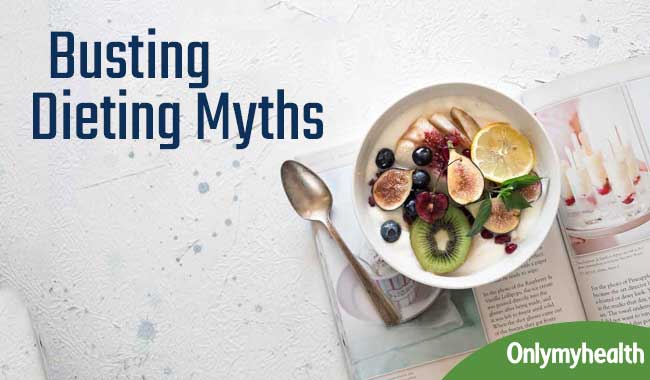
There are as many myths related to food and diet as there are stars in the sky. Food and Nutrition is a science that is constantly evolving. New research with new conclusions is studied every single day. What was a fact yesterday might be history today. Some of these food myths are so ridiculous that they serve as a good means of entertainment. The media, including the internet are flooded with so much literature of eating and lifestyle that it would take lifetimes to sort out the truth from the crap.
Here are some of the common myths and misunderstandings regarding food choices.
Myth 1

Cold water has more calories than hot water.
Truth: Water has “zero calories”. Irrespective of whether, it is hot or cold. The reason why cold water is advised during exercise is the body temperature rises when you exercise.
Myth 2
Eating heavy meals in the later part of the day promotes fat gain.
Truth: Eating anything excess of caloric requirement will promote weight gain (fat gain). The reason nutritionists advice tapering down of calories towards the end of the day, is that the body’s metabolism tend to dip towards the post lunch period, and is the lowest when you go off to sleep. Thus the body does not require too many calories for its functioning as the day ends. Anything in excess at this time will be unused and hence stored as fat. Thus, eating while watching TV, especially during dinners, is not right.
Myth 3
If I eat the wrong food, I can burn it off by doing extra in the gym tomorrow!

Truth: The body doesn’t work that way. The junk you ate has already been deposited in your fixed deposit account (fat deposit). It is erroneous to say that I will decide what my body burns as fuel during workout. If you are not a conditioned athlete, chances are that you will have to work harder for a couple of days before your body decided that you can burn off that sin you ate. In most cases, you have already piled on more than your body can handle. There is no way to compensate for wrong eating. Your body doesn’t work that way.
Myth 4
Low fat is not going to make me fat.
Truth: Anything in excess of what the body needs is going to be stored as fat. What you read on food labels is not going to tell you how much fat you will get when you consume the product. The food label only tells you what is the composition of the food present in that particular product. Fat free products may also have ridiculously high levels of sugar and sodium. Sugar also has a direct relationship with fat stores in the body. The higher the sugar content of the food ingested, the higher is a person’s body fat percentage. Foods high in sodium will play havoc in the body with reference to blood pressure. High peaks in blood glucose levels will excite insulin levels, and prolonged behaviour of this type will result in diabetes. High sodium levels will increase blood pressure and prolonged high blood pressure will lead to cardiac ailments in the future.
Myth 5
You should never combine cereals and pulses in the diet.
Truth: We have read (and understood) earlier that for complete vegetarians, the only way of attaining a decent protein intake is to combine cereals and pulses so that the limiting amino acids from one is compensated by the availability in the other. Our traditional Indian recipes were so scientifically balanced that it seems like they already knew this fact. Cereals and pulses form the basis of the Indian diet.
Read more articles on Diet Basics.
For more such articles, Download OnlymyHealth App.
How we keep this article up to date:
We work with experts and keep a close eye on the latest in health and wellness. Whenever there is a new research or helpful information, we update our articles with accurate and useful advice.
Current Version